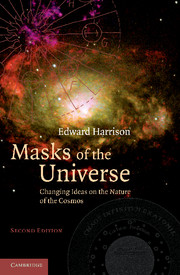Book contents
5 - The Medieval Universe
Published online by Cambridge University Press: 27 October 2009
Summary
“I drew these tides of men into my hands and wrote my will across the sky in stars,” wrote Lawrence of Arabia in The Seven Pillars of Wisdom. Human tides have washed across the globe, crushing nations and carving out empires, led by god-possessed men who sought to write their will across the sky in stars. One such leader was Alexander the Great, who crossed the Hellespont with his cohorts in the fourth century B.C., subjugated Asia Minor and Egypt, vanquished the armies of the Persian Empire, quelled the turbulent forces of Afghanistan, crossed the Hindu Kush, and invaded and defeated the nations of the Punjab.
Eastward flowed Hellenic philosophy and science in the wake of Alexander's conquests; westward flowed oriental philosophy and religion. Westward into the Mediterranean world came the glorious Ahura Mazda – the Zoroastrian Lord of Light embattled with the Lord of Darkness – bringing the belief that the soul is divine and the worship of gods other than the true god a sin. Westward into the Roman legions came the religion of the dying and resurrected martyred god, the triumphant Mithras, bringing the sacramental eating of the flesh of the god and the notions of forgiveness and redemption. Westward came the Babylonian stories of the creation and the flood, the Persian stories of heaven and hell, the last day of judgment, and the resurrection of the dead, all of which shaped the theology and philosophy of the Greco-Roman world in preparation for the rise of Christianity and Islam.
- Type
- Chapter
- Information
- Masks of the UniverseChanging Ideas on the Nature of the Cosmos, pp. 61 - 80Publisher: Cambridge University PressPrint publication year: 2003

